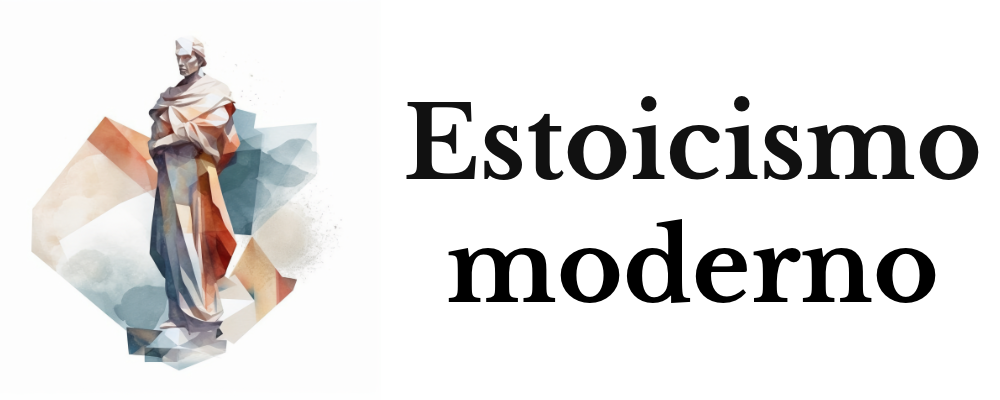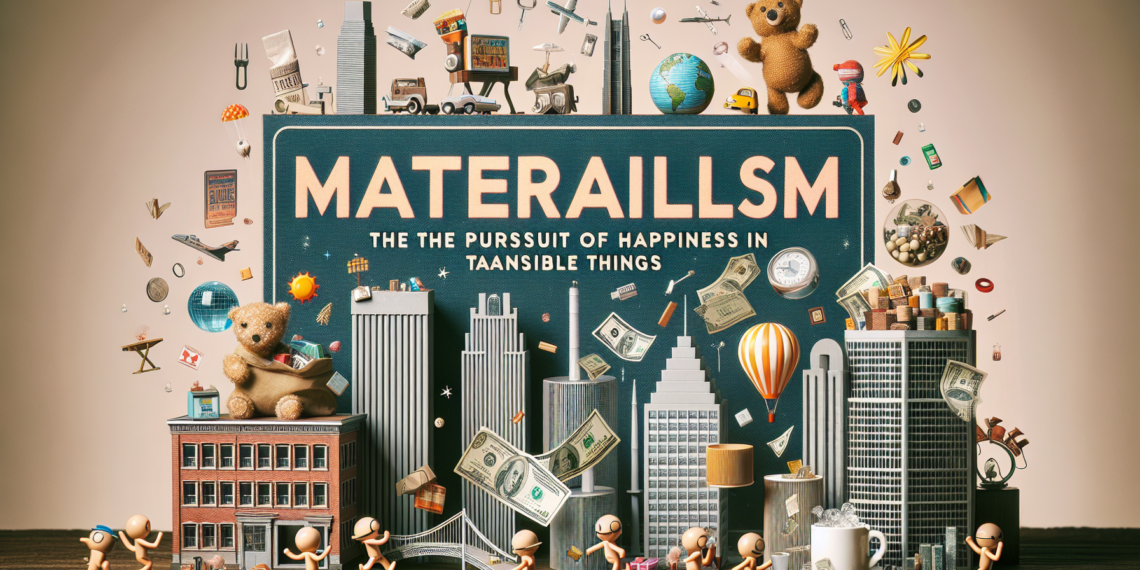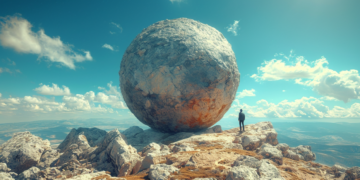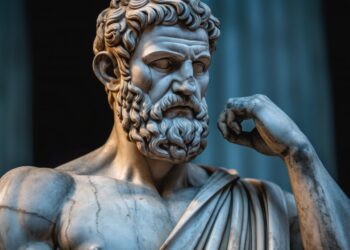Materialism: The Quest for Happiness in the Tangible
In an age where the accumulation of goods and displaying a life filled with luxuries and ephemeral pleasures seems to be the measure of personal fulfillment, we face a challenge worthy of deep reflection: the pursuit of happiness in the tangible. Stoic philosophy, with its unshakeable nature and focus on virtue, stands against this tendency as a guiding light towards a more profound understanding of human happiness.
In the words of Epictetus: “It’s not what happens to us that disturbs us, but our interpretation of what happens.” With this premise, we are encouraged to consider that it is not material objects that bring us lasting satisfaction, but the perspective with which we approach our existence. Let us then learn to discern, through analysis and practice, how to apply these teachings to the contemporary dilemma of materialism.
The Deception of Materialism
Materialism whispers a seductive promise: what you own will be synonymous with who you are. However, Seneca warns us: “He who is not enough for himself will be even less so for possessions that are alien to him.” Our intensive consumer culture drives us into an endless race to acquire the latest gadget, the fashionable car, or whatever the passing trend may be, confusing our ephemeral desires with our authentic needs.
How then can we free ourselves from this materialistic spell? Stoic practice invites us to embark on a journey towards inner reflection and self-determination, where happiness is not a product of our possessions, but a consequence of our internal harmony.
Towards Stoic Self-Determination
Stoic self-determination starts with the premise that we are the architects of our own destiny. According to Marcus Aurelius: “Your happiness depends on the quality of your thoughts.” It is, therefore, the quality of our interpretation of events, not the events themselves, that determines our tranquility.
In a world where anxiety and constant comparison are commonplace, self-determination and personal growth instruct us to focus our attention on what is under our control: our actions, reactions, and moral judgments. Material possessions, while they may provide momentary pleasure, fall outside our true sphere of influence and should, therefore, not be the foundation of our inner peace.
Stoic Practices for Daily Life
To combat the influence of materialism in our daily lives, we can implement practical techniques drawn from Stoic wisdom.
- Morning Reflection: Start the day considering how you would act in accordance with your values, regardless of external circumstances.
- Impulse Control: Before yielding to the temptation of a frivolous purchase, pause and ask yourself if this item will bring true value to your life or if it is merely a fleeting desire.
- Practice of Austerity: Periodically, strip your life of unnecessary luxuries. Experience living with the bare essentials to recognize that your being is not reduced to your possessions.
- Meditation on Finitude: Reflect on the transience of life and how material objects lose significance in the face of death’s imminence, as advised by Marcus Aurelius.
- Cultivation of Virtues: Focus on developing strength, justice, wisdom, and temperance. These virtues will provide you with a wealth more enduring than any material good.
Impactful Messages and Calls to Action
Materialism, with its deceptive shine and empty promises, diverts us from the core of what truly makes us human: our capacity to live according to reason and virtue. Remember that, as Stoicism teaches, you need less to be happy, not more.
Reflect: What do you own that you truly need? How much of what you desire has been imposed by consumer culture, and how much emanates from your authentic self?
Simplify: Challenge the unnecessary complication of your life. Remove the superfluous and find freedom in simplicity.
Cultivate Your Inner Garden: Instead of seeking satisfaction in the tangible, invest in your personal growth and the quality of your interpersonal relationships.
Practice Gratitude: Cultivate a sense of appreciation for what you already have, and don’t let the dissatisfaction dictated by materialism take root in your heart.
Live According to Your Nature: As a rational and social being, your ultimate goal is to live in harmony with your nature. There is no possession that exceeds the value of a life lived with purpose and in accordance with moral principles.
This is the Stoic call to action for the contemporary individual: to look beyond the mirage of materialism and reclaim control over one’s happiness through self-determination and practical wisdom. Choose to be the master of your being, not a slave to your possessions. The pursuit of happiness in the tangible is an endless race: it is only deep within our souls that we will find the peace we so long for.









